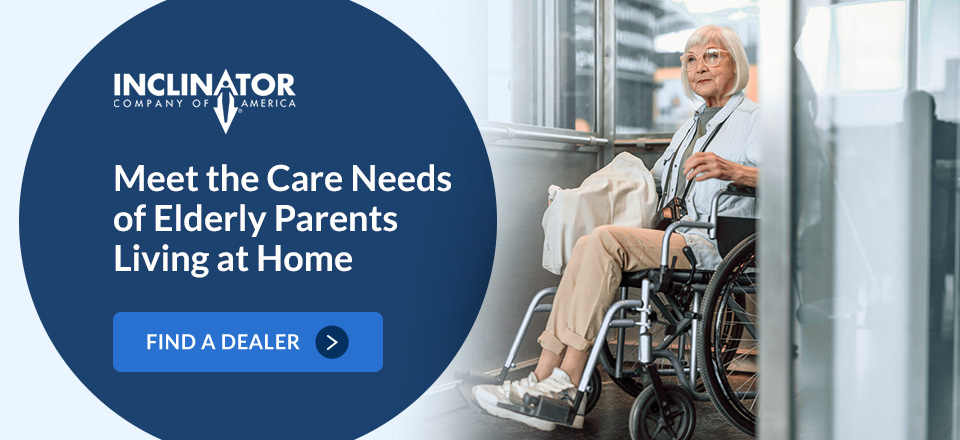Recent studies suggest that nearly 30% of American households are multigenerational households, with elderly parents living with their adult children. Welcoming an aging parent to live with you can provide many benefits. For seniors, living with their children can ensure accessibility to aid in emergencies and promote independence that moving into a senior community may reduce. For you, having your parent at home could provide peace of mind and promote stronger relationships with your immediate family or children. However, inviting your parents to live with you is not without challenges. There are several elements you must consider to create a safe and comfortable living environment that supports everyone’s needs.
Questions to Ask Before Moving in Elderly Parents
First and foremost, moving your parents to your home requires forethought. Everyone in your home has unique needs, and you must consider how you can satisfy these needs and the impact one person may have on another. For instance, you may need to craft a different work schedule, align schedules with your own children or implement strategies for using common spaces. Consider these questions and how you can respond to each to ensure a safe and comfortable home for everyone:
- How much care does your parent need? If your parent is moving in with you due to health concerns or physical restraints, it is critical to be realistic about the care they will need. Speak with your parents and their healthcare provider to understand their restrictions, physical needs and care requirements.
- How much care can you provide? Determine your availability before moving your parent into your home. Consider your schedules and routines. Do you have flexible work hours? Can you work from home to be closer to your parents? Can you meet your parent’s physical needs? For example, will you be able to bathe, dress or complete other personal tasks for your parent if they require it? Will you need to hire a caregiver when you’re not at home?
- Will you need to change your routines? Beyond your work schedule, consider how living with your parents may impact other routines. For example, do you do regular activities with your spouse? Do you have children who attend practices or club meetings? Do your schedules align for mealtimes and bedtimes? More importantly, how will changing these routines impact everyone’s happiness and quality of life? Consider what you’re willing to alter and if these changes are realistic for you, your children, your partner and your parent.
- Does your household agree with this idea? If you live with others, it is critical to have their input. Children should feel excited about living with a grandparent, and spouses or partners should be supportive. If this decision strains your relationships or causes household stress, it may be best to consider another option.
- Will moving affect anyone’s social life? A final consideration is how moving your parents to your home can impact your social life and theirs. Social interaction is critical for older adults because it can reduce feelings of loneliness, depression and isolation. For you, a healthy social life can reduce risks for chronic diseases, improve your well-being and promote healthier decision-making. Will your parents have socialization opportunities after moving? Will you have time to meet with friends and other family members?

How to Prepare Your Home for Aging Parents
After having conversations with those in your household, your parent and your parent’s healthcare providers, it’s time to make some changes. Here’s how you can prepare your home:
1. Understand Financial Considerations for Moving Parents In
Preparing your home begins with understanding your financial situation and the changes you may need to make. A couple of elements to consider include:
- New expenses: With a new member of the household, you will likely encounter some new expenses. Whether you must complete home remodeling for safety, increase grocery costs or pay more in utilities, it’s important to prepare for these expenses.
- Tax implications: You may be able to claim your parent as a dependent if you meet certain conditions. You may also be able to claim medical expenses or receive tax deductions in some cases. Discuss possible tax implications with a professional to understand your unique situation.
2. Learn How to Communicate With Aging Parents
Communication is critical for every household, but moving a parent in can require some additional conversations. If you’re going to be sharing common spaces like the living room and kitchen, discuss how and when to use them. Discuss expectations on both sides to avoid frustration.
Also, set boundaries and prioritize privacy. Consider creating designated spaces for you and your parent to complete activities they like or spend time alone when necessary. Communicate the importance of these boundaries and ensure your parent feels a sense of independence as well.
3. Make Home Modifications for Elderly Parents
Assess home safety before moving your parent in. Begin this process by decluttering and organizing where possible. Prevent tripping hazards by keeping the floor clear of objects, and be sure your parent can find the objects they need. Consider designating specific spaces for your parent’s items in each space of the house. For example, create an empty kitchen cabinet for preferred food, and designate a bathroom shelf for everyday necessities for easy access.
At this point, you should also consider whether you need to make lasting home modifications. You may need to install ramps to your home’s exterior so your parents can travel with ease. You may also need to widen doorways or remove doors to enable your parents to navigate your home with accessibility devices. Also, consider other aids that can promote safety and independence. For example, grab bars in the bathroom can reduce the need for bathroom assistance. Additionally, a home elevator can ensure your parent has access to every floor of your home, promoting independence and increasing their safety when you’re not home.
4. Find Support Options for Caregivers of Elderly Parents
As a final consideration, equip yourself with resources and tips for support. Aging parents often need ongoing support, and the impact of moving in elderly parents can result in excess strain for you or your family. Whether you are able to provide this support yourself or need external support, it’s important to recognize your needs and discover strategies for managing caregiver stress. Consider local resources, online communities and private support sessions to equip yourself with the tools you need to contribute to a positive, safe, comfortable and welcoming living environment.
Meet the Care Needs of Elderly Parents Living at Home
At Inclinator, we support aging in place. We understand the challenges of aging and the importance of maintaining independence. With almost a century of industry experience, we have the knowledge and skills to help families improve their quality of life with home elevators. If you’re preparing your home for an aging parent, find an Inclinator dealer near you to ensure you build a welcoming and safe living environment.
- Getting Your Home Ready for Your Parents to Move In - March 10, 2025
- 7 Tips for Adjusting to Life in a Wheelchair - February 18, 2025
- 7 Disability-Friendly Cleaning Accessories - January 14, 2025







